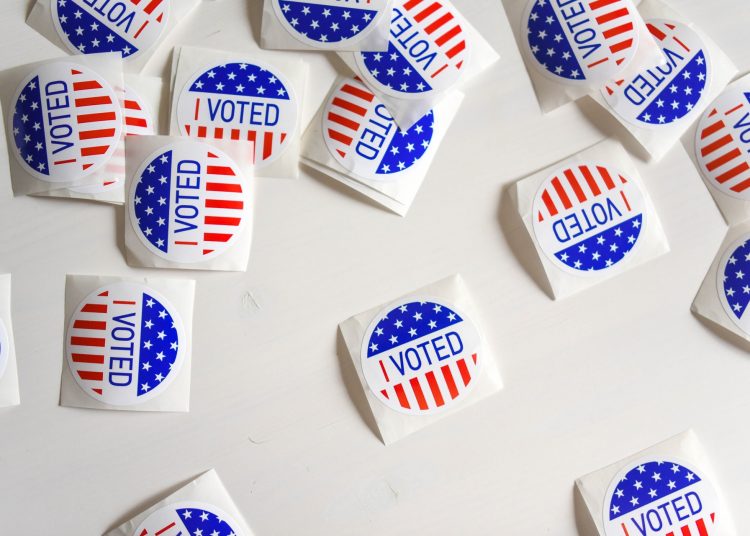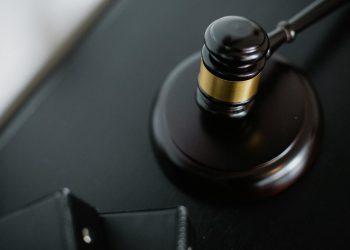The Iowa Legislature is moving forward with a large election reform bill. HF 590 (formerly HSB 213) and SF 413 (formerly SSB 1199) were introduced on Tuesday, approved in subcommittee on Wednesday, and passed in each chamber’s State Government Committee on Thursday, along party lines – 16 to 8 in the House committee and 10 to 5 in the Senate committee.
The upcoming first funnel on March 5, a self-imposed deadline that requires non-appropriation bills to have passed out of committee in the chamber they originated, accounts for the speed to get the bills through committee.
Now it is time to slow the process down. State Rep. Bobby Kaufmann, R-Wilton, in the subcommittee for the House bill, appeared open to amendments to address some of the concerns brought up by opponents. The Iowa House on Monday evening also held a public forum for the bill so lawmakers could hear from Iowans.
With large bills like this, there are good provisions, bad provisions, and questionable provisions. This bill is no different. It’s a mixed bag. (Update: These comments reflect the Iowa House version of the bill. This writer was unable to read the Senate version of the bill. While writing this, the Iowa Senate debated SF 413 and it passed 30 to 18. Coverage of that vote and bill is forthcoming.)
Where we agree:
- Holding county auditors accountable for following the state’s election law is good. County auditors can’t pick and choose what part of Iowa’s election law they will follow. They certainly can’t fail in their duties in a way that hinders or disregards the law. (There’s a caveat, see below.)
- Requiring the Attorney General or county attorney to investigate allegations of election misconduct and misconduct by election officials for prosecution is a provision we can support. The Attorney General should not be able to decide what provisions in Iowa’s Code are enforced.
- We support prohibiting county auditors from claiming home rule when it comes to conducting state and federal elections. It is not unreasonable to expect a consistent standard across the state. In that vein, prohibiting county auditors from sending absentee ballot request forms on their own makes sense. Each county shouldn’t be able to do its own thing.
- We support reducing the number of days to request an absentee ballot from 120 days to 70 days before election day. We believe that is reasonable.
- We also agree that in-person absentee voting can be reduced to 18 days.
- We support the process of the Iowa Legislature (or Legislative Council when the session is out) directing the Secretary of State to send absentee ballot request forms during a public health disaster declaration by the Governor. It is something that should be allowed at the state level when necessary.
- Absentee ballot applications shouldn’t be pre-filled with anything other than the date; this is just common sense.
- Daily absentee ballot reports increase transparency.
- Reducing the number of elections that a person can not vote in before they are marked inactive from two to one makes sense. Notification is required. Re-registering is easy. This provision shouldn’t be controversial.
- County auditors shouldn’t mail ballots to people who don’t request them. They also shouldn’t arbitrarily establish satellite voting locations. There should be a demonstrated need and a formal request from their constituents.
- We support requiring county auditors to contact a voter if their absentee ballot affidavit is not signed within 24 hours of receipt. This provision provides the voter time to correct the mistake, and it could alert the county auditor if that absentee ballot was submitted fraudulently.
- Allowing residents of assisted living facilities or Iowans who are hospitalized to make an absentee ballot request in writing or by phone after the deadline.
- Requiring signed affidavits to be reconciled with the number of absentee ballots counted makes good electoral security sense.
- Ending ballot harvesting, no one other than a relative, household member, caretaker, or elections official should collect and return absentee ballots of an elderly Iowan. During the Iowa House subcommittee, someone suggested adding another designee if an elderly voter does not have a household member, caretaker, or relative in the area who could help. That could be a reasonable amendment, but the county auditor’s office could also have a trained staff member do that. In any case, strangers with grassroots political organizations should never be allowed to handle ballots.
Where we disagree:
- Holding county auditors for violations of the state’s election code is good. Finding county auditors criminally liable for violating the Secretary of State’s issued guidance outside the rulemaking process is not. Making that a class D felony punishable up to five years in prison and a fine of $1,025 to $10,245 is even worse.
- We are generally concerned with expanding the power of the Secretary of State’s office. For instance, the bill authorizes the Secretary of State to issue a $10,000 fine to county auditors for technical infractions. What do those include? Is the county auditor personally fined, or is the auditor’s office fined? Is there due process before the penalty is given? After the fact, there is an appeal process, but we are also concerned about the bill’s provision that requires a suspension of a duly-elected county auditor for up to two-years if that fine is not paid in 60 days and they fail to appeal. Why such a short window? After all of this, the county auditor could also face criminal charges. That seems excessive.
- Subjecting non-party political organization candidates to the same signature requirements to be nominated by petition as major-party candidates when they do not have the party apparatus to collect signatures is wrong-headed. As is more than doubling (or more than doubling for some offices), the required attendance at a nominating convention for non-political political organization candidates is extreme. What is the public interest served? Frankly, this aspect of the bill is self-serving and only protects the Republican and Democratic parties’ interests.
Where we have questions:
- Giving law enforcement the authority to prevent a violation of Iowa Code Chapter 50 (Canvass of Votes), while the law needs to be enforced, it is unclear how law enforcement would prevent a violation of the law. What does this look like in practice? Would this require additional training? What kind of a fiscal impact would this make?
- The bill states that a precinct election worker or a county auditor (county commissioner of elections) is criminally liable if they “interfere” or “obstruct” a person at a polling place. They could be charged with third-degree election misconduct, which is a serious misdemeanor punishable up to one year in jail and a fine of $430 to $2560. What do they mean by “obstruct” and “interfere”?
- Having someone charged with second-degree election misconduct, an aggravated misdemeanor, punishable up to two years in prison, and a fine of $555-$8,540, for “failure to adequately perform voter list maintenance” seems broad. The bill was written in such a way that incompetence could be deemed criminal.
- Requiring ballot drop boxes to have security, maintenance, and documentation requirements is sound. Restricting large, populous counties such as Polk, Linn, and Black Hawk counties to one drop box location is problematic. Could the bill keep the requirements for a dropbox location but base the number on the county’s population?
- The bill states that county auditors can’t send ballots out until 18 days before Election Day. The current law is 29 days. Only one state, Washington, does not send out absentee ballot until 18 days before Election Day. Why 18 days? What led to that date being selected? We don’t believe 29 days are required, but 18 seems arbitrary, and there are legitimate concerns about the postal service and have enough time to contact voters if there is something wrong with their ballot. The Iowa Legislature should consider increasing from 18.
Before this bill is passed, we hope that lawmakers consider some of the legislation’s problems and shore up areas that lack clarity. Iowa lawmakers should craft election law that is just, fair, and transparent that protects election security and safeguards Iowans’ right and ability to vote.

















